Shortly after I finished New Bern Strong, Mary and I went on a cruise through the Mediterranean. Just before I left though, I was told that if I wanted to make a good showing in October’s exhibit at the Bank of the Arts, I would need to essentially fill a 40-square-foot area with paintings. And, since we returned from that trip only at the very end of August, I would have just the month of September to do this in!
Here are the October paintings. The topic is “not from here,” i.e., not from Eastern North Carolina. But not from Asia, either, like my previous display at the Bank of the Arts. This led me to paint what is certainly a diverse collection, ranging from Pittsburgh, Pennsylvania to the ancient city of Ephesus, in Turkey. Some paintings are intended to be amusing, some reflect the wonder I felt in seeing the scene. Some are noisy, contrasting to others that are totally calm and quiet. A mixed bag, for sure. I hope you enjoy perusing them.
Together, they were hung in one section of the Bank of the Arts’ wall:
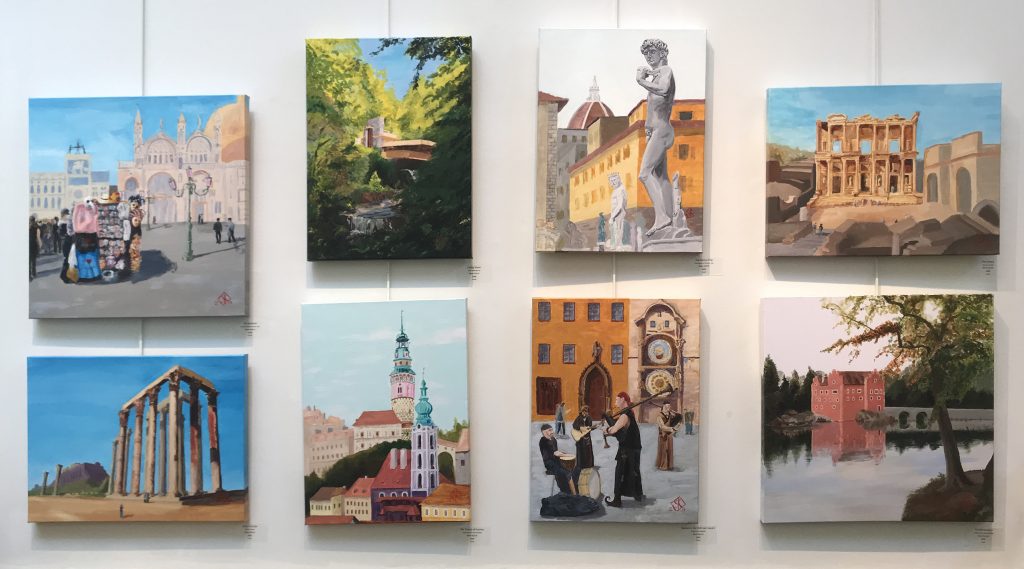
From the top left, The Venetian is a view of St. Mark’s Square in Venice, with a souvenir cart prominently in the foreground, manned by a true Venetian. To me, Venice is about the hustle, not only now, but for centuries. And while this young man may not be hustling in the sense of doing something dishonest, he’s out there trading on the city’s glitz and glamor, with his collection of Venetian masks.
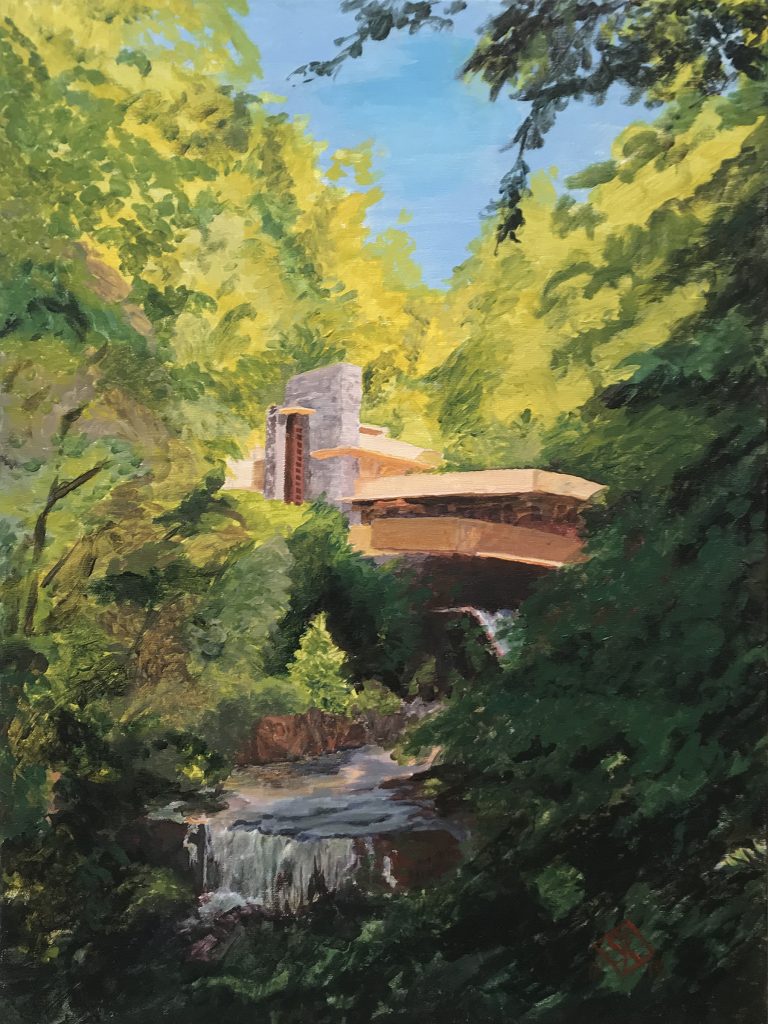
I suppose I would have changed the placement of these pictures in an order that made more sense to me, but our next painting is Falling Water, a view of the iconic Frank Lloyd Wright building being picked out by the sun’s rays in the dense, encroaching forest.
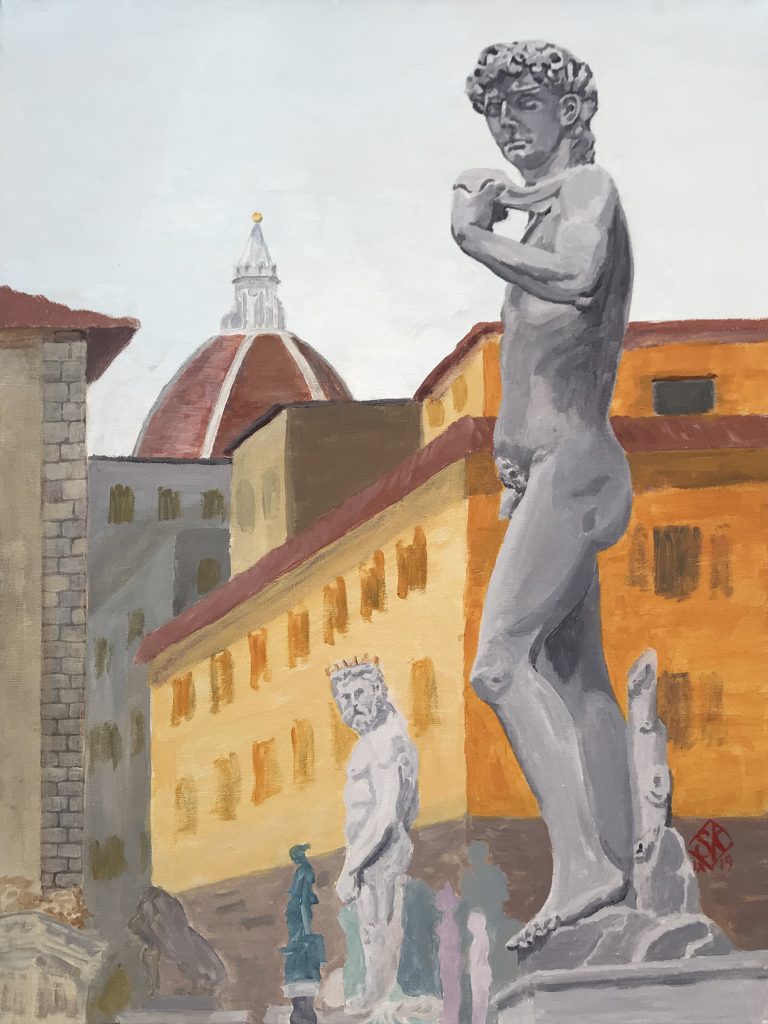
As I was walking through the town square in Florence, the sun was shining in a way that made the statue of Neptune appear to be looking at the statue of the proud young David in a jealous manner, as though he was some sort of usurper. I tried to capture this amusing idea in a painting.
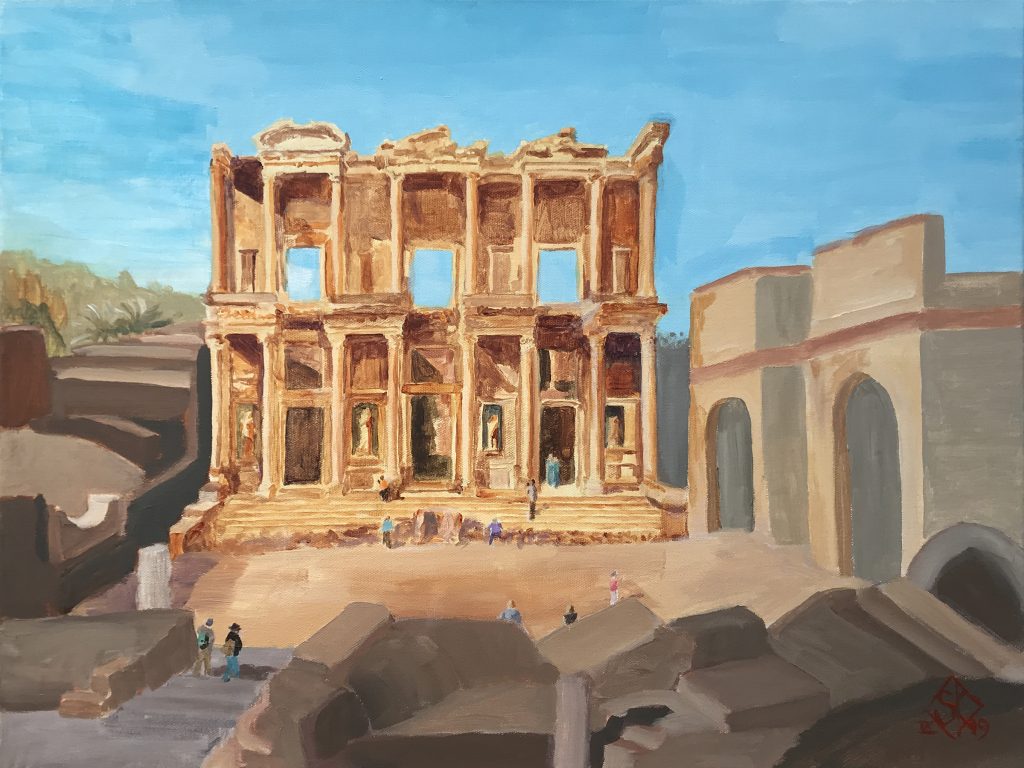
The library of Celsus was one of the greatest of its time. As Ephesus declined, however, its contents were transferred to Alexandria. Later, Ephesus was abandoned, and the entire city was covered by silt. Archaeologists have uncovered much of the city, and have reconstructed the magnificent facade of the library. When you walk through the tumbled ruins of the city, down the central avenue, you come upon this amazing sight.
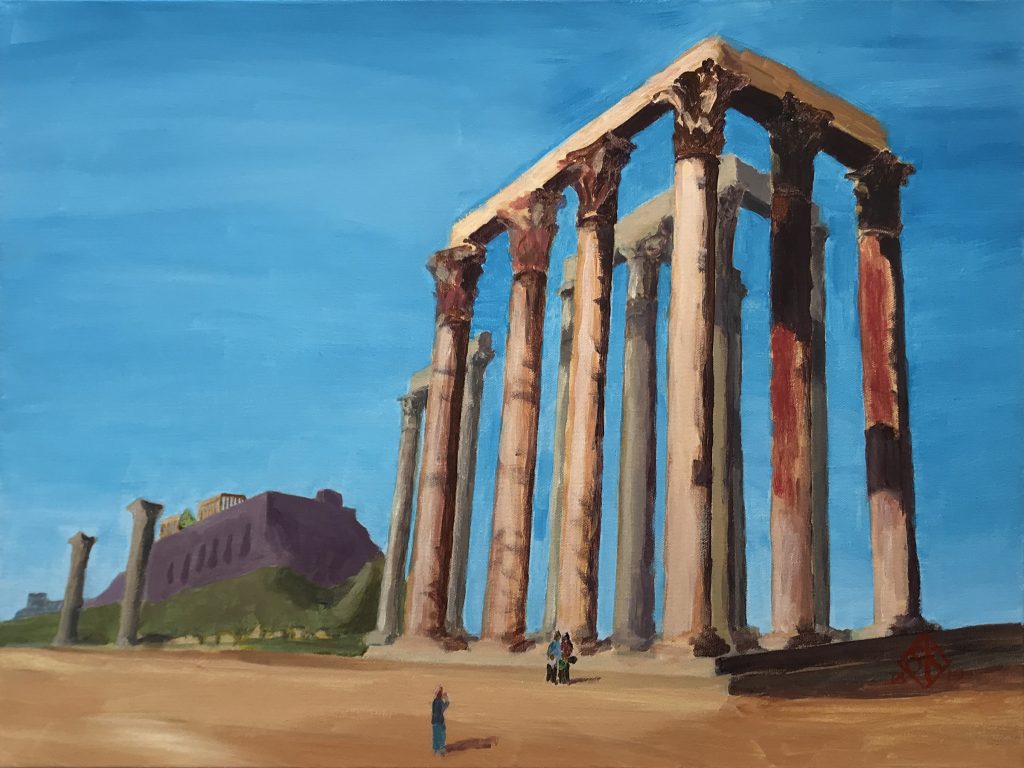
While the library of Ephesus had many visitors, I didn’t see many tourists when I visited the temple of Zeus, in Athens, Greece. Just this family, posing for their photo. The thing is, the size of this temple, even in its much diminished, ruined state, boggle my mind in terms of its size and imposing nature. The columns in the far corner seem to disappear in the distance.
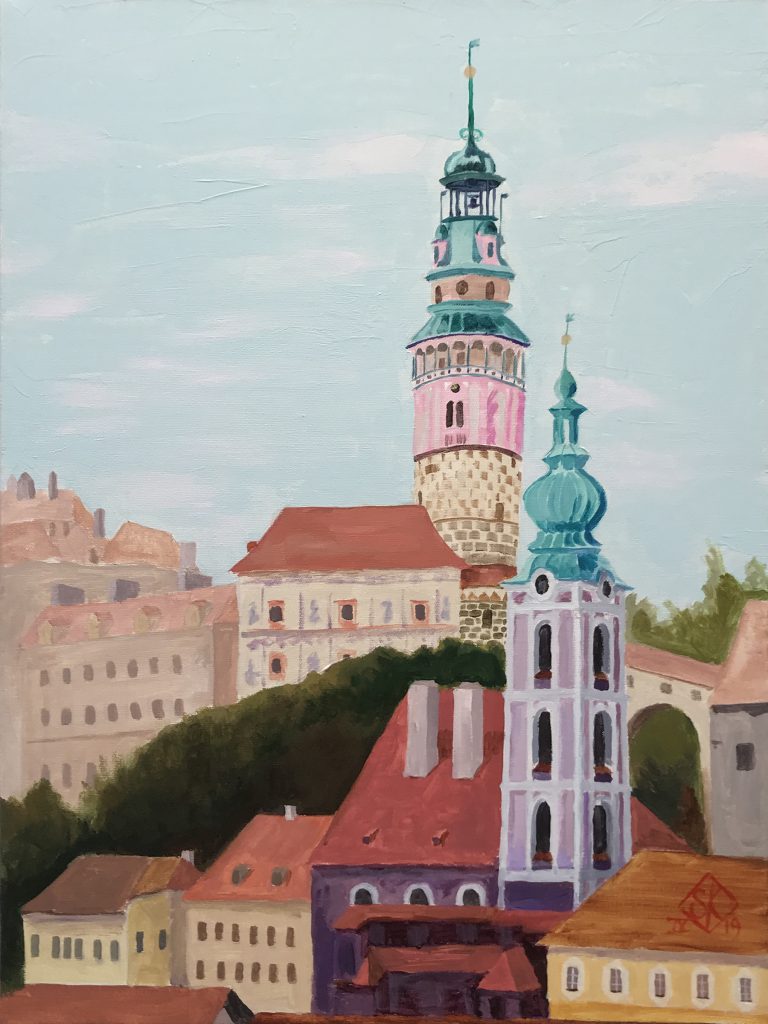
It’s hard not be enchanted by Czesky Krumlov, a fairy-tale like city perched on a cliff, surrounded by a horseshoe bend in the Moldau River, in the south of the country, near the Austrian border. During the Cold War, the castle was left to moulder, but after the Berlin Wall fell, and the Czechs had their Velvet Revolution, they saw the value of the city and its castle as a tourist destination. They restored the stuccoed walls of the town to their brilliant former state, and the city became a UNESCO World Heritage Site. The color of the place is wonderful, unique.
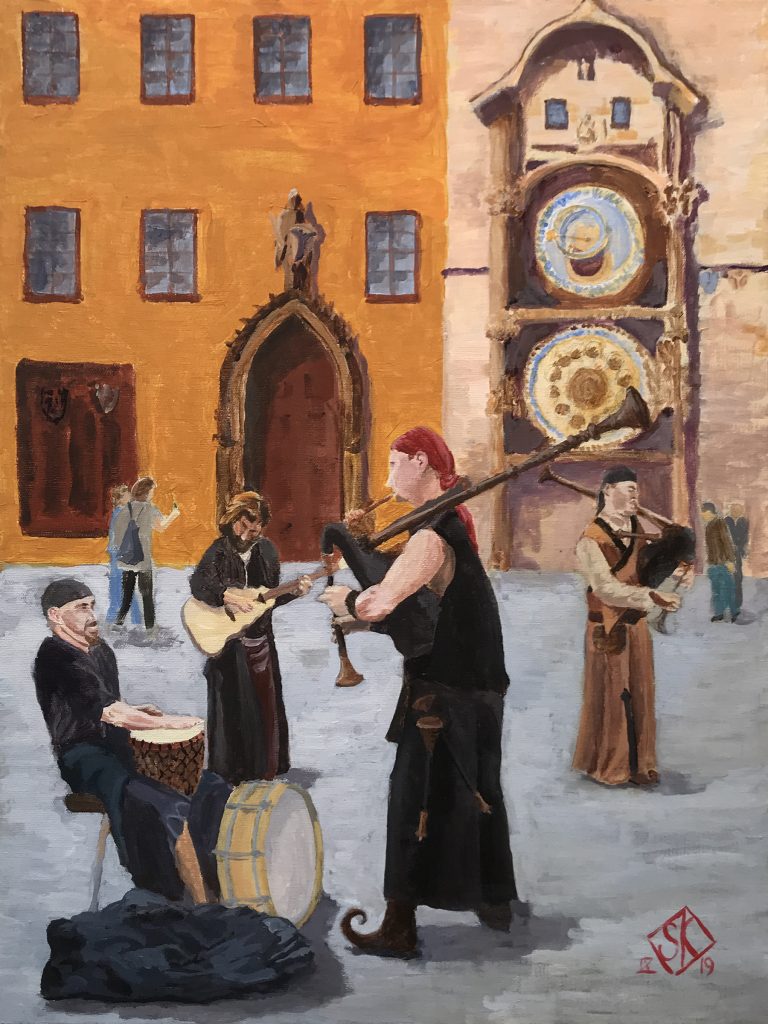
I suppose Prague has its own kind of hustle. The fairy tale–like old town square, with its Medieval clock hosts a number of street performers and vendors. This group, dressed all in leather, puts on shows of sword fighting, as well as playing this motley collection of not-at-all-Czech instruments. The image is so striking, I just had to paint it.
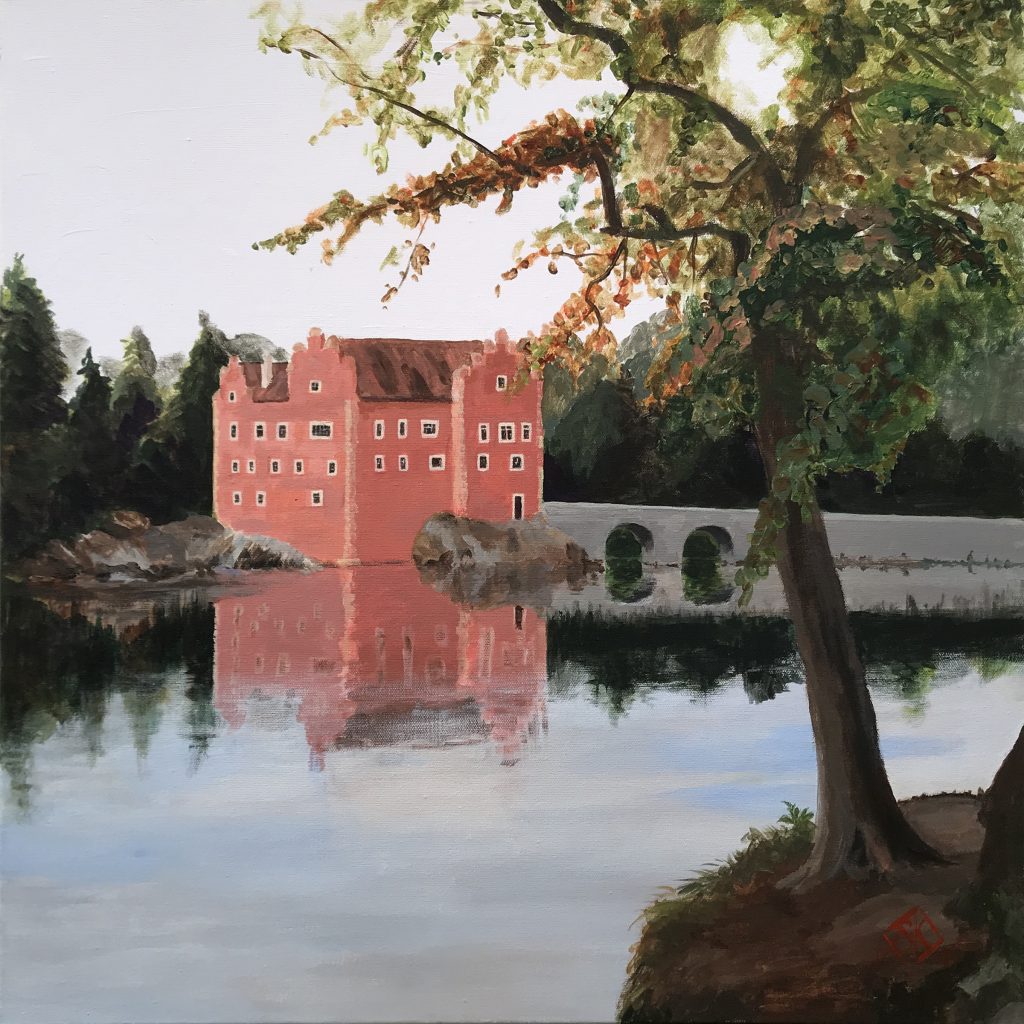
Speaking of fairy tales, my cousin Slavka tells me that many Czech fairy tales begin with the phrase “once upon a time, in Červená Lhota . . .” The castle, surrounded by its mirror-like lake, is absolutely iconic for the Czechs, and is a tourist destination for them, but little known outside the country, as it is hidden away in the hills to the south of Prague.
